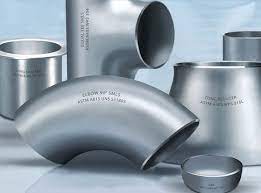Differences Between Inconel 718 and HAYNES 282
Inconel 718 and HAYNES 282 are two of the most popular high-temperature alloys used in a variety of industries. Both are nickel-based superalloys that are strong and resistant to corrosion, but some key differences between them must be taken into account when choosing the right alloy for a given application.
Inconel 718 is a nickel-chromium-molybdenum alloy that is known for its high strength and excellent corrosion resistance. It is often used in high-temperature aircraft components and nuclear reactor components due to its ability to withstand temperatures of up to 1300°F (704°C). Inconel 718 is also relatively easy to machine and weld, making it a popular choice for many industrial applications.
HAYNES 282 is a nickel-cobalt-chromium-tungsten alloy that is also known for its exceptional strength and corrosion resistance. It is often used in aerospace components and gas turbine components due to its ability to withstand temperatures of up to 2000°F (1093°C). HAYNES 282 is also relatively easy to machine and weld, but it is more expensive than Inconel 718 due to its higher raw material costs.
The primary difference between Inconel 718 and HAYNES 282 is their respective temperature ratings. Inconel 718 is designed to operate at temperatures up to 1300°F (704°C), while HAYNES 282 is designed to operate at temperatures up to 2000°F (1093°C). As a result, HAYNES 282 is the ideal choice for applications that require high-temperature strength and corrosion resistance.
In addition to their temperature ratings, Inconel 718 and HAYNES 282 also differ in terms of their machinability and weldability. Inconel 718 is relatively easy to machine and weld, while HAYNES 282 is more difficult to both machine and weld due to its higher content of cobalt and tungsten. As a result, HAYNES 282 is typically chosen for applications that require exceptional strength and corrosion resistance and can tolerate the costs associated with its higher machining and welding costs.
Finally, the cost of Inconel 718 and HAYNES 282 also differs significantly. Inconel 718 is typically less expensive than HAYNES 282 due to its lower raw material costs. However, the cost difference between the two alloys will depend on the specific application and the quantity being purchased.
In conclusion, Inconel 718 and HAYNES 282 are two popular high-temperature alloys that offer excellent strength and corrosion resistance. The primary difference between the two is their respective temperature ratings, with Inconel 718 designed to operate at temperatures up to 1300°F (704°C) and HAYNES 282 designed to operate at temperatures up to 2000°F (1093°C). In addition, Inconel 718 is typically less expensive than HAYNES 282 due to its lower raw material costs. Ultimately, the right alloy must be chosen based on the specific application and the desired temperature rating.





Comments